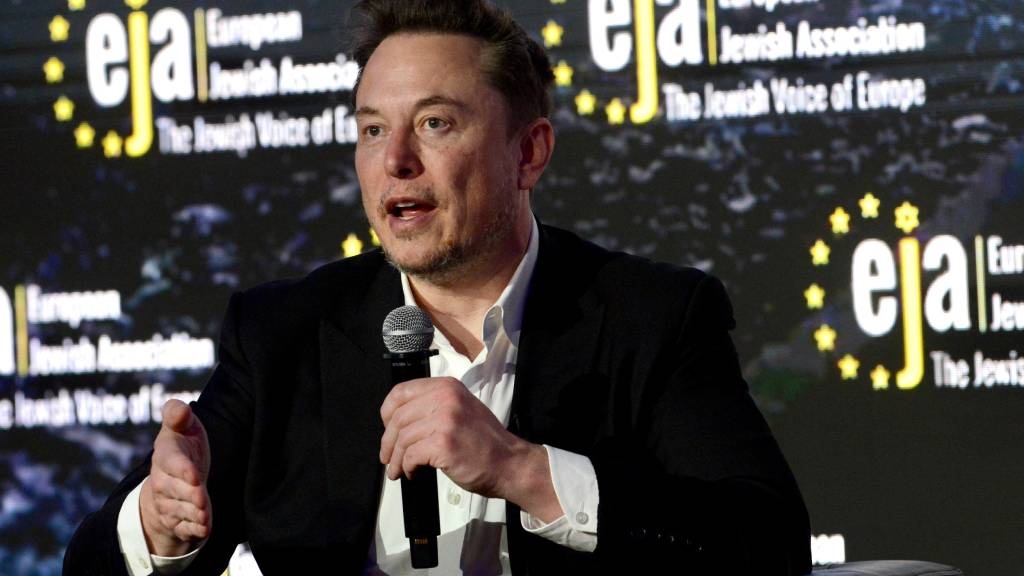
- Elon Musk's SpaceX is developing hundreds of spy satellites for a US intelligence agency.
- The move demonstrates the extent of SpaceX's ties to US intelligence and military operations.
- This isn't the US government's first use of SpaceX's services, with the Pentagon previously using Falcon 9 rockets to launch military payloads into space.
SpaceX is building a network of hundreds of spy satellites under a classified contract with a US intelligence agency, five sources familiar with the programme said, demonstrating deepening ties between billionaire entrepreneur Elon Musk's space company and national security agencies.
The network is being built by SpaceX's Starshield business unit under a $1.8 billion contract signed in 2021 with the National Reconnaissance Office (NRO), an intelligence agency that manages spy satellites, the sources said.
The plans show the extent of SpaceX's involvement in US intelligence and military projects and illustrate a deeper Pentagon investment into vast, low-Earth orbiting satellite systems aimed at supporting ground forces.
If successful, the sources said the programme would significantly advance the ability of the US government and military to quickly spot potential targets almost anywhere on the globe.
The contract signals growing trust by the intelligence establishment of a company whose owner has clashed with the Biden administration and sparked controversy over the use of Starlink satellite connectivity in the Ukraine war, the sources said.
The Wall Street Journal reported in February the existence of a $1.8 billion classified Starshield contract with an unknown intelligence agency without detailing the purposes of the programme.
Reuters reporting discloses for the first time that the SpaceX contract is for a powerful new spy system with hundreds of satellites bearing Earth-imaging capabilities that can operate as a swarm in low orbits, and that the spy agency that Musk's company is working with is the NRO.
READ | Musk's Starlink is changing Africa, but SA still faces a long wait - here's why
Reuters was unable to determine when the new network of satellites would come online and could not establish what other companies are part of the programme with their own contracts.
SpaceX, the world's largest satellite operator, did not respond to several requests for comment about the contract, its role in it and details on satellite launches. The Pentagon referred a request for comment to the NRO and SpaceX.
In a statement the NRO acknowledged its mission to develop a sophisticated satellite system and its partnerships with other government agencies, companies, research institutions and nations, but declined to comment on Reuters' findings about the extent of SpaceX’s involvement in the effort.
A spokesperson said:
The satellites can track targets on the ground and share that data with US intelligence and military officials, the sources said. In principle, that would enable the US government to quickly capture continuous imagery of activities on the ground nearly anywhere on the globe, aiding intelligence and military operations, they added.
Roughly a dozen prototypes have been launched since 2020, among other satellites on SpaceX's Falcon 9 rockets, three of the sources said.
A US government database of objects in orbit shows several SpaceX missions having deployed satellites that neither the company nor the government have ever acknowledged. Two sources confirmed those to be prototypes for the Starshield network.
All the sources asked to remain anonymous because they were not authorised to discuss the US government programme.
'No one can hide'
The Pentagon is already a big SpaceX customer, using its Falcon 9 rockets to launch military payloads into space. Starshield's first prototype satellite, launched in 2020, was part of a separate, roughly $200 million contract that helped position SpaceX for the subsequent $1.8 billion award, one of the sources said.
The planned Starshield network is separate from Starlink, SpaceX's growing commercial broadband constellation that has about 5 500 satellites in space to provide near-global internet to consumers, companies and government agencies.
The classified constellation of spy satellites represents one of the US government's most sought-after capabilities in space because it is designed to offer the most persistent, pervasive and rapid coverage of activities on Earth.
"No one can hide," one of the sources said of the system's potential capability, when describing the network's reach.
ALSO READ | Russia denies US reports Moscow plans to put nuclear weapons in space
Musk, also the founder and CEO of Tesla and owner of social media company X, has driven innovation in space but has caused frustration among some officials in the Biden administration because of his past control of Starlink in Ukraine, where Kyiv's military uses it for secure communications in the conflict with Russia. That authority over Starlink in a war zone by Musk, and not the US military, created tension between him and the US government.
A series of Reuters' stories has detailed how Musk's manufacturing operations, including at SpaceX, have harmed consumers and workers.
The Starshield network is part of intensifying competition between the US and its rivals to become the dominant military power in space, in part by expanding spy satellite systems away from bulky, expensive spacecraft at higher orbits. Instead a vast, low-orbiting network can provide quicker and near-constant imaging of the Earth.
China also plans to start building its own satellite constellations, and the Pentagon has warned of space weapon threats from Russia, which could be capable of disabling entire satellite networks.
READ MORE | Deepfake Elon Musk scam: Cape Town brokerage Banxso vows to compensate victims
Starshield aims to be more resilient to attacks from sophisticated space powers.
The network is also intended to greatly expand the US government's remote-sensing capabilities and will consist of large satellites with imaging sensors, as well as a greater number of relay satellites that pass the imaging data and other communications across the network using inter-satellite lasers, two of the sources said.
The NRO includes personnel from the US Space Force and CIA and provides classified satellite imagery for the Pentagon and other intelligence agencies.
The spy satellites will house sensors provided by another company, three of the sources said.




 Publications
Publications
 Partners
Partners
























